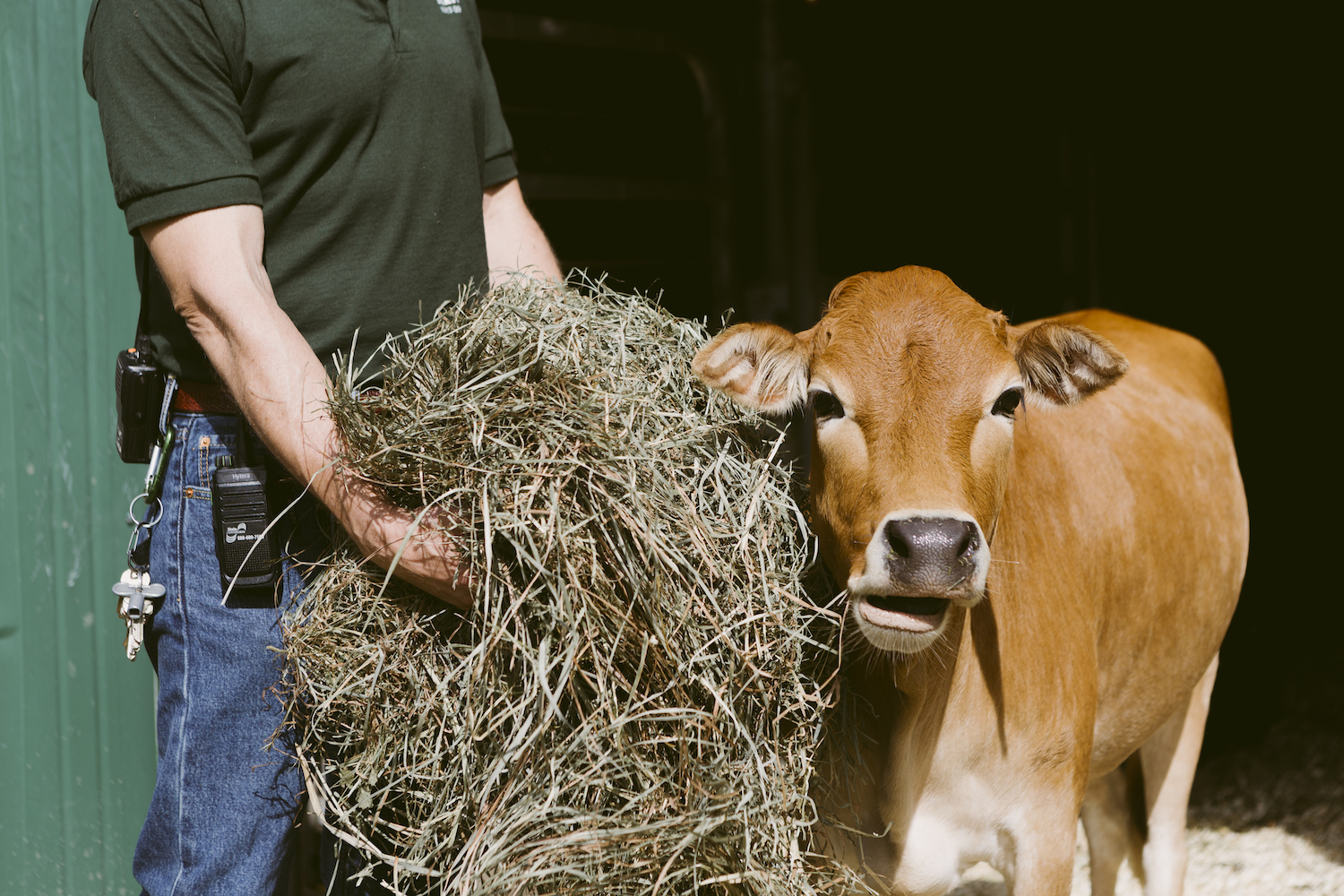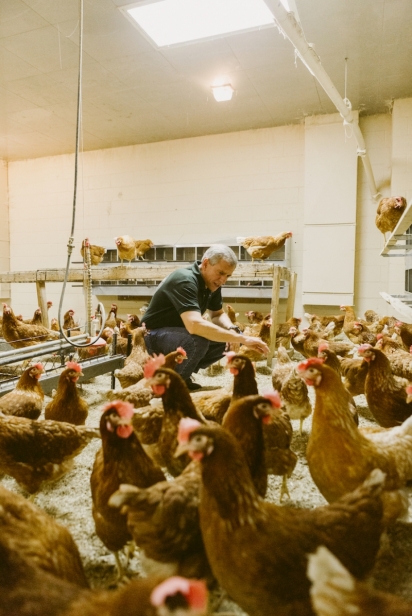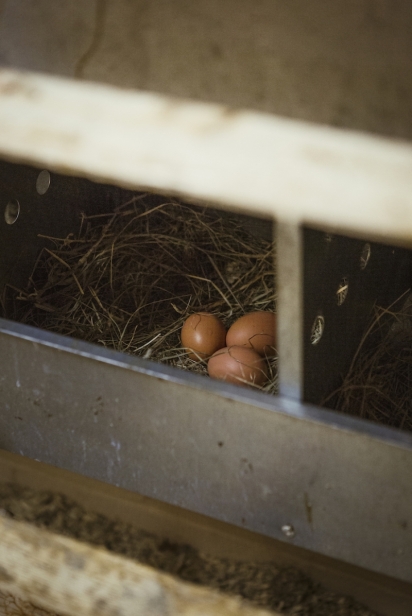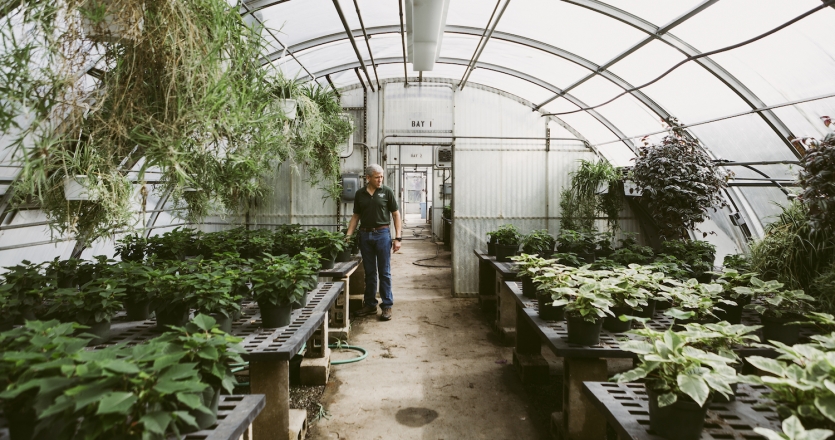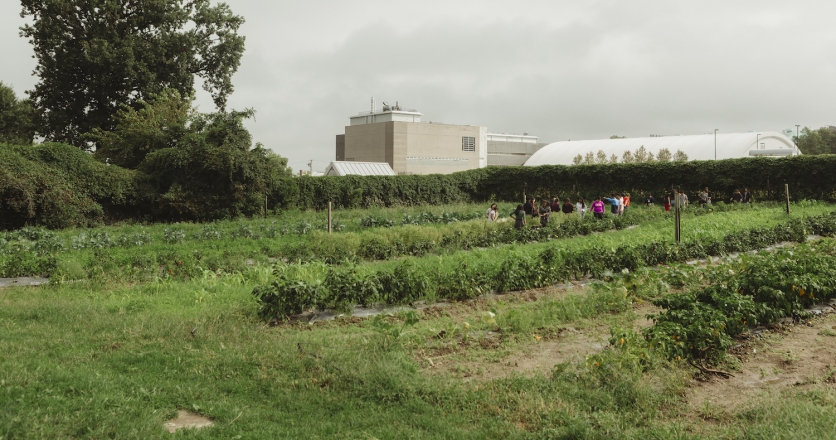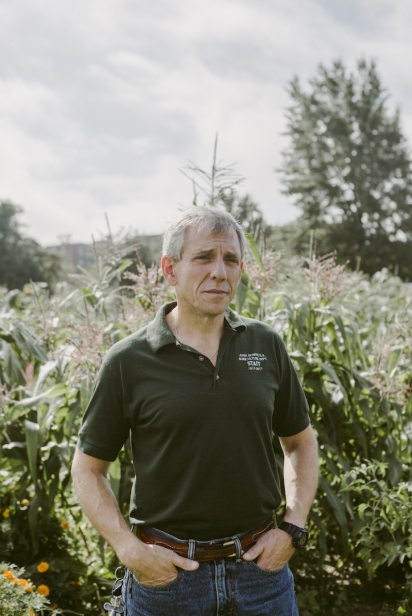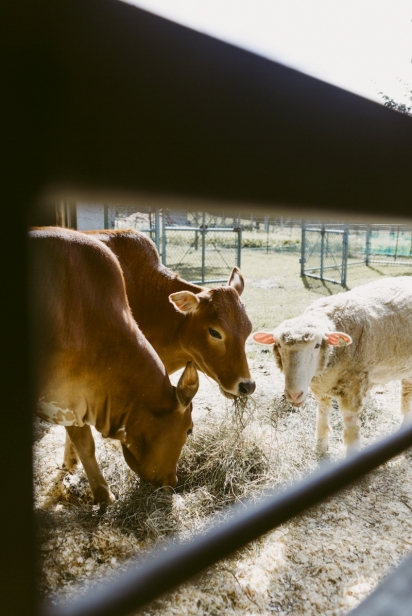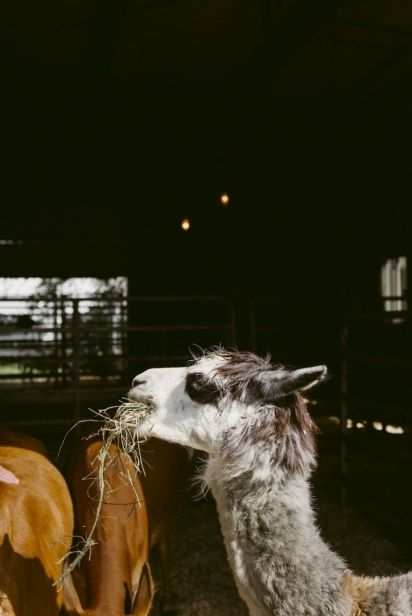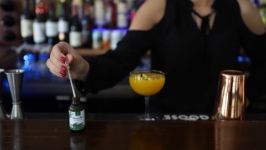A New Row to Hoe
September 1 will mark the end of an era at a Queens institution. On that day, Steven Perry, assistant principal for agriculture at John Bowne High School in Flushing, will end his 37-year love affair with the working farm at the heart of his nationally recognized agriculture program.
Perry first learned of the program when he was in middle school. He knew immediately that he had to join it. By the time he graduated high school, he’d decided to devote his working life to agriculture, farming and animal and plant husbandry. After college, there was little question in his mind that he would return to John Bowne to teach.
Last fall, as Perry prepared for retirement, he was eager to discuss his students and all their awards and achievements. He wanted to talk about his faculty and staff’s passion and dedication to their students and the program. He wanted to talk about the Agriculture Program he runs, about the heroism and versatility of farmers—how hard they work and how, by putting food on our plates, they make a vital contribution to our lives. The only thing he wasn’t keen on discussing was himself.
The farm in question is one of the oldest of a handful of working farms in Queens. Located on the grounds of John Bowne High School, the Agriculture Program began in 1917 when a New York City reform school with a farm at the same location closed. Students in Perry’s program have come from across the city for a hands-on experience with most aspects of modern farming.
Perry’s desire to stay out of the spotlight almost succeeded. But after a lifetime of behind-the-scenes achievement, he was a 2017 and 2018 honoree at the Tribeca Film Festival’s Tribeca Disruptive Innovation Awards—recognizing “the diverse field of disruptors, revolutionaries and game-changers whose breakthroughs are creating radical solutions to some of the world’s most vexing problems.”
“For me,” he said, the award “was a nice affirmation of the vision that I had for the program actually being recognized … it caused me to really reflect on the growth and the coming to fruition of the vision, and where I wanted it to be by a certain date.”
Perry is proud to report that the program now has 600 students, double the number it had when he took over the department. His program, which celebrated its 100th anniversary at the Queens Farm Museum in October 2018, has a graduation rate of 98%, making it one of the highest of the city’s specialized programs. “No matter the year, between 85 to 92% go on to college. And there have been years that close to half of those kids have gone on to agricultural majors,” he said.
Inspired by Perry, John Bowne student Larissa Li, 17, wants to study greenhouse management at Delaware Valley University. She says Perry has given her opportunities and connections in agriculture plant science that she never would have known about otherwise.
Citlali Hernandez, 16, who is majoring in animal science at John Bowne and working a summer farm internship, agrees. She wants to major in livestock at Cornell or Rutgers and go on to work in the dairy industry. “He’s [Perry] opened so many doors that I couldn’t have imagined if I wasn’t in the program.”
Perry began teaching within the program in 1983 and became supervision/agriculture assistant principal in 1996. In the time since, he’s expanded the curriculum to include aquaculture, hydroponics, large animals, aviculture, aquaponics and herpetology.
His initial dream was to become a veterinarian. Although he’s not sure how he first heard about the John Bowne program, when he did, he knew it was where he wanted to be, even though back then it took two buses to get there from his home on the south side of Jamaica. “A bus to Jamaica Avenue, Jamaica Avenue to here,” he said, smiling.
Perry attributes his passion for the program to his father, who was a biology teacher. “We were always out in the field somewhere,” he said. “I remember him lying on his belly, taking pictures of wildflowers, going into the woods with the Peterson guides and identifying all the birds. We would travel to the pet shop together and fill the house with birds, reptiles and amphibians. We’d be out in the lake and streams, knee deep, fishing, in the woods, always outdoors.”
On a visit to Perry’s office last school term, the reception area was filled with exotic bird and reptile cages. His speech was punctuated by parrot calls, as students dropped off homework and paused to chat to the birds.
Perry described his time at Bowne High School as a gift. But he was not alone in receiving this gift. “They [the students] can identify vegetables that many of the kids in their area can’t. They can describe what type of vine, plant or tree that vegetable or fruit comes from.” He knows from his own experience that this knowledge is never lost.
“Whether they realize it or not, decisions with regard to their diets are affected by having gone through this program,” he said.
One aspect of the program that Perry is particularly proud of is that it takes place on a working farm producing vegetables, fruit and eggs, which are available to the public through the program’s farm stand. Students have first dibs on the harvest, though there is plenty left for members of the public.
Perry, who lives in Suffolk County, said that his family had been spoiled by having all the wonderful produce available through the school farm. “I’ve gotten lazy with my own garden. I’m going to have to pick up the lead after I retire.”
As far as the program is concerned, he has complete confidence in the faculty who will fill his shoes come September. “Adaptation and diversity are the key,” he said. “As long as the program adapts to the needs of the population as it’s done since I took over, it will thrive.”
John Bowne’s farm store is located outside the school, on Main Street, from early July through August, and operates inside the school building September through Thanksgiving.
John Bowne High School
Tribeca Film Festival
Queens Farm Museum | @queensfarm


